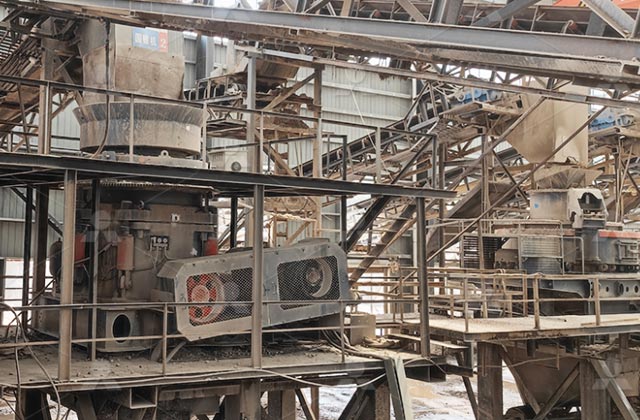In the world of construction and mining, aggregate production plays a crucial role. The aggregate produced is essential for various applications such as concrete, asphalt, and road base materials. One of the key components in aggregate production is the crusher. The professional aggregate production crusher is a sophisticated piece of machinery designed to efficiently process and produce high-quality aggregate materials. This article explores the features, types, and benefits of these crushers, emphasizing their importance in modern aggregate production.

Types of Aggregate Crushers
- Jaw Crushers: These are among the most commonly used crushers in aggregate production. They operate on a simple principle: compressing rock between two surfaces. The primary advantage of jaw crushers is their ability to handle a variety of materials, from hard granite to softer limestone. Their design allows for efficient crushing with minimal maintenance.
- Cone Crushers: Known for their high productivity and quality of output, cone crushers are essential in secondary and tertiary crushing stages. They use a rotating cone to compress the material against a stationary bowl, making them ideal for producing finer aggregates. Cone crushers are particularly effective in processing abrasive materials and are highly valued for their uniform product size.
- Impact Crushers: These crushers use high-speed impact forces to break down materials. They are versatile and can process a wide range of materials, including asphalt and concrete. Impact crushers are known for their ability to produce high-quality, cubical-shaped aggregates and are often used in recycling operations.
- Vertical Shaft Impact (VSI) Crushers: VSI crushers use a high-speed rotor to throw material against a stationary anvil or rock shelf. This process produces fine, angular aggregates ideal for high-quality concrete and asphalt production. VSI crushers are renowned for their ability to create highly consistent product shapes and sizes.
Key Considerations for Professional Aggregate Production
- Capacity and Throughput: The capacity of a crusher is a critical factor, as it determines the volume of material that can be processed. Choosing the right size and type of crusher depends on the scale of the operation and the desired output. Ensuring that the crusher can handle the maximum anticipated load is crucial for maintaining efficiency and avoiding bottlenecks.
- Material Type and Characteristics: Different crushers are suited for different materials. For instance, jaw crushers are effective for primary crushing of hard materials, while impact crushers are more appropriate for softer, more friable materials. Understanding the properties of the material being processed—such as hardness, abrasiveness, and moisture content—helps in selecting the most suitable crusher.
- Cost of Operation and Maintenance: Professional aggregate production requires a balance between performance and operational costs. Crushers must be evaluated not only for their initial purchase price but also for their long-term maintenance requirements. Factors such as wear and tear, energy consumption, and spare parts availability can significantly impact the total cost of ownership.
- Technological Advancements: Modern crushers incorporate advanced technologies to enhance performance and efficiency. Features such as automation, remote monitoring, and advanced control systems can improve operational efficiency and reduce downtime. Keeping abreast of technological advancements helps in selecting equipment that offers the best performance and longevity.
By understanding the different types of crushers and their applications, operators can make informed decisions to optimize their production processes. Balancing factors such as capacity, material characteristics, cost, and compliance with regulations ensures that the selected crusher meets the specific needs of the operation while delivering high-quality aggregates efficiently.
